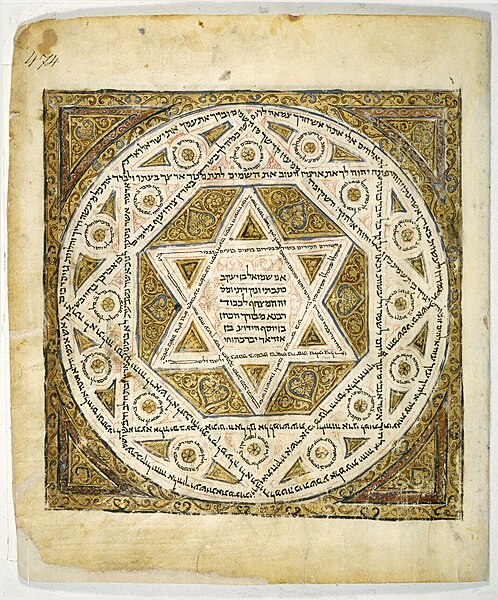The Damascus Pentateuch or Codex Sassoon 507 is a 10th-century Hebrew Bible codex, consisting of the almost complete Pentateuch, the Five Books of Moses. The codex was copied by an unknown scribe, replete with Masoretic annotations. The beginning of the manuscript is damaged: it starts with Genesis 9:26, and Exodus 18:1–23 is also missing. In 1975 it was acquired by the Jewish National and University Library, Jerusalem. The codex was published in a large, two-volume facsimile edition in 1978.
Page from Damascus Pentateuch, Exodus 25:23-35
The Masoretic Text is the authoritative Hebrew and Aramaic text of the 24 books of the Hebrew Bible (Tanakh) in Rabbinic Judaism. The Masoretic Text defines the Jewish canon and its precise letter-text, with its vocalization and accentuation known as the mas'sora. Referring to the Masoretic Text, masorah specifically means the diacritic markings of the text of the Jewish scriptures and the concise marginal notes in manuscripts of the Tanakh which note textual details, usually about the precise spelling of words. It was primarily copied, edited, and distributed by a group of Jews known as the Masoretes between the 7th and 10th centuries of the Common Era (CE). The oldest known complete copy, the Leningrad Codex, dates from the early 11th century CE.
Carpet page from the Leningrad Codex, the oldest complete manuscript of the Masoretic Text.
A page from the Aleppo Codex, showing the extensive marginal annotations.



